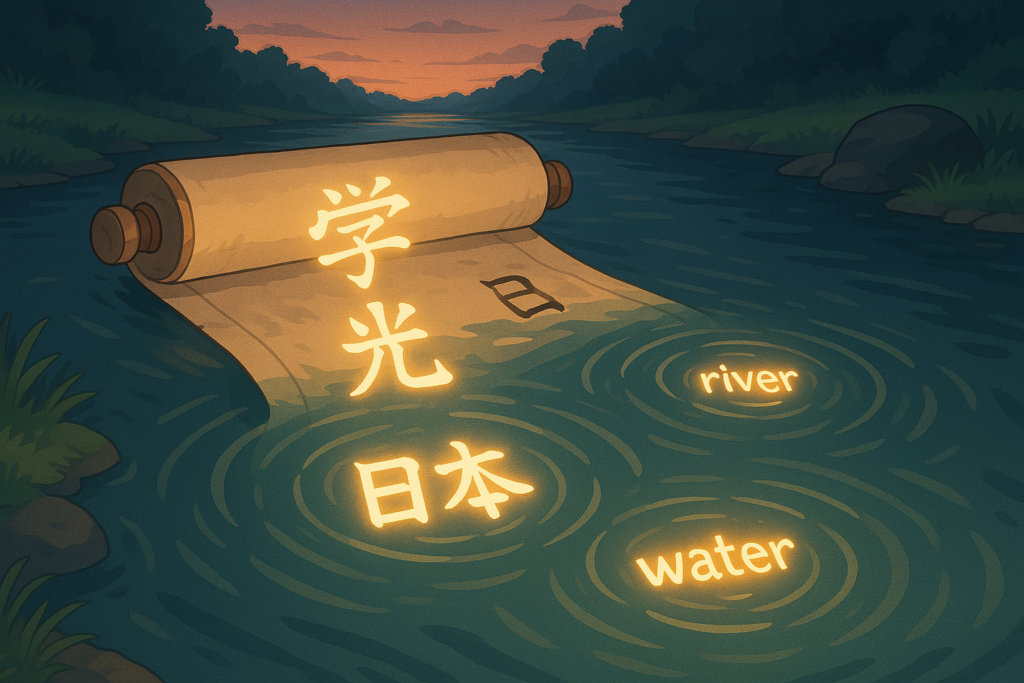Have you ever found yourself lost in a maze of kanji, desperately searching for the right meaning of a Japanese word? You’re not alone. Choosing the best Japanese dictionaries for your learning journey can be the difference between frustration and fluency. As someone who’s spent years helping students navigate the complexities of Japanese, I’ve discovered that having the right dictionary isn’t just helpful—it’s essential.
Why Using Multiple Japanese Dictionaries Matters
Before diving into specific recommendations, let’s understand why serious Japanese learners should own more than one dictionary:
- Different dictionaries offer unique perspectives on word usage
- Comparing definitions across resources provides deeper understanding
- Specialized dictionaries cover areas general references miss
- Various formats (digital, app, physical) serve different learning situations
According to our research for our 18-Month Japanese Fluency Plan, learners who consult multiple dictionaries retain vocabulary 40% more effectively than those using a single source.
Best Japanese Dictionaries for Digital Learners
1. Jisho (Online/App)
Type: Japanese-English (和英辞典) Perfect for: Daily lookup of unfamiliar words Unique strength: Fast, free, and integrates multiple Japanese-English dictionaries
Jisho has become the go-to digital dictionary for many learners because of its clean interface and extensive features. Beyond basic translations, it offers example sentences, kanji breakdown, and even shows words in context through the Sentences tab.
2. Takoboto (App)
Type: Japanese-English (和英辞典) Perfect for: On-the-go learning Unique strength: Offline functionality and built-in flashcard system
While less known than some other apps, Takoboto combines dictionary functions with vocabulary learning tools, making it perfect for turning lookup moments into learning opportunities.
Best Japanese Dictionaries for Intermediate Learners
3. The Kodansha Kanji Learner’s Dictionary
Type: Kanji (漢英辞典) Perfect for: Systematic kanji study Unique strength: SKIP system makes finding characters intuitive without knowing readings
As explored in our WaniKani Levels Explained article, effective kanji learning requires systems that connect characters to meanings in memorable ways. The Kodansha dictionary does exactly this, organizing entries by visual appearance rather than readings.
4. Sanseido Kokugo Jiten (三省堂国語辞典)
Type: Japanese-Japanese (国語辞典) Perfect for: Moving beyond translation to true understanding Unique strength: Clear explanations with contemporary examples
When you’re ready to break free from English translations, this is one of the best Japanese dictionaries to start with. Its explanations use simpler Japanese than other monolingual dictionaries, making it accessible to intermediate learners.
Want to explore Japan’s culture?
Discover Japan’s rich culture, traditions, and hidden gems with our expertly crafted guides. Get insider tips on travel, food, and history. All for free!
Best Japanese Dictionaries for Advanced Study
5. Shinmeikai Kokugo Jiten (新明解国語辞典)
Type: Japanese-Japanese (国語辞典) Perfect for: Nuanced understanding of word meanings Unique strength: Detailed explanations of subtle differences between similar words
As you progress in your Japanese studies, you’ll find that translation alone doesn’t capture the full meaning of words. This dictionary excels at explaining nuances that are crucial for natural-sounding Japanese.
6. Nihongo Bunkei Jiten (日本語文型辞典)
Type: Grammar Dictionary Perfect for: Mastering sentence patterns Unique strength: Organized by grammar patterns rather than vocabulary
While not strictly a word dictionary, this resource is invaluable for advanced learners who need to understand how words function in sentences. Each grammar pattern is explained with multiple examples showing various usage contexts.
Specialized Japanese Dictionaries
7. Nihongo Kōgo Hyōgen Jiten (日本語口語表現辞典)
Type: Colloquial Expressions Perfect for: Understanding natural, spoken Japanese Unique strength: Covers casual expressions rarely found in textbooks
When comparing learning resources, as we did in our Japanese From Zero vs Genki analysis, we found that most textbooks fall short on colloquial language. This dictionary fills that gap perfectly.
8. Kanji in Context
Type: Vocabulary Building Perfect for: Expanding vocabulary systematically Unique strength: Organizes vocabulary by kanji relationships
This isn’t a traditional dictionary but rather a vocabulary-building system that shows how kanji combine to form words. It’s particularly effective for learners who have mastered basic kanji and want to expand their vocabulary efficiently.
Physical vs. Digital Dictionaries
While apps offer convenience, physical dictionaries provide unique benefits:
- Deeper engagement: The act of manually looking up words creates stronger memory connections
- Serendipitous learning: You often discover new words while searching for others
- Distraction-free study: No notifications or app-switching interruptions
- Durability: A quality physical dictionary will last decades
The best Japanese dictionaries for serious learners include at least one high-quality physical reference alongside digital tools.
How to Use Japanese Dictionaries Effectively
Maximize your learning with these dictionary habits:
- Compare definitions across multiple sources
- Record examples that resonate with your interests
- Pay attention to collocations (words that naturally appear together)
- Note the register (formal, casual, literary, etc.)
- Create your own example sentences using new words
For more comprehensive guidance on structuring your Japanese studies, download our free guide to creating a personalized Japanese learning plan at [resources page link]. This guide includes dictionary comparison charts and vocabulary tracking templates specifically designed for self-directed learners.
FAQ About Japanese Dictionaries
What is the single best Japanese dictionary for beginners?
Jisho.org is the best Japanese dictionary for beginners because it’s free, intuitive, and provides readings for all Japanese text along with example sentences.
Should I use a Japanese-Japanese dictionary as a beginner?
No, most beginners should start with a Japanese-English dictionary and transition to Japanese-Japanese dictionaries once they reach JLPT N3 level or equivalent.
How many dictionaries do I really need?
Most serious Japanese learners need at least three dictionaries: a comprehensive Japanese-English dictionary, a kanji dictionary, and eventually a Japanese-Japanese dictionary.
Are dictionary apps as good as physical dictionaries?
Dictionary apps are excellent for convenience and speed, but physical dictionaries often provide more comprehensive explanations and encourage deeper engagement with the language.
What’s your experience with Japanese dictionaries? Have you found a particular resource that transformed your learning? Share your thoughts in the comments below!
Love Japan? Stay in the Loop!
Get the best of Japan straight to your inbox: language, culture & travel insights!




